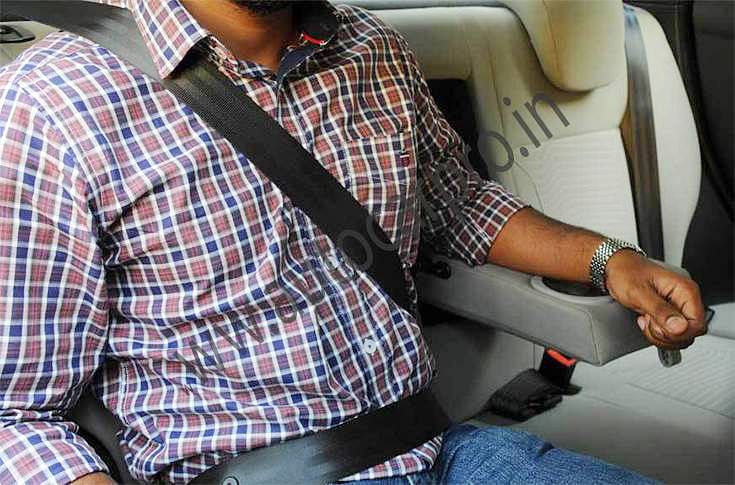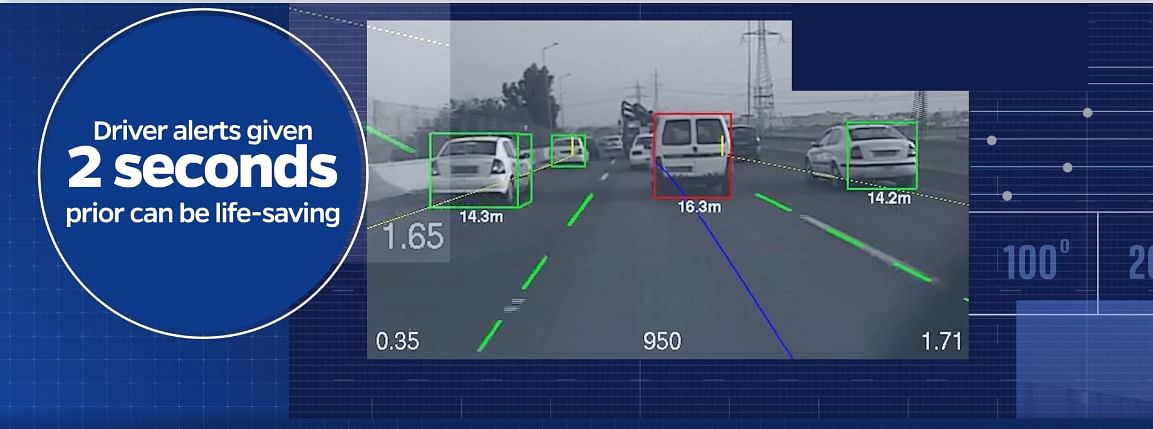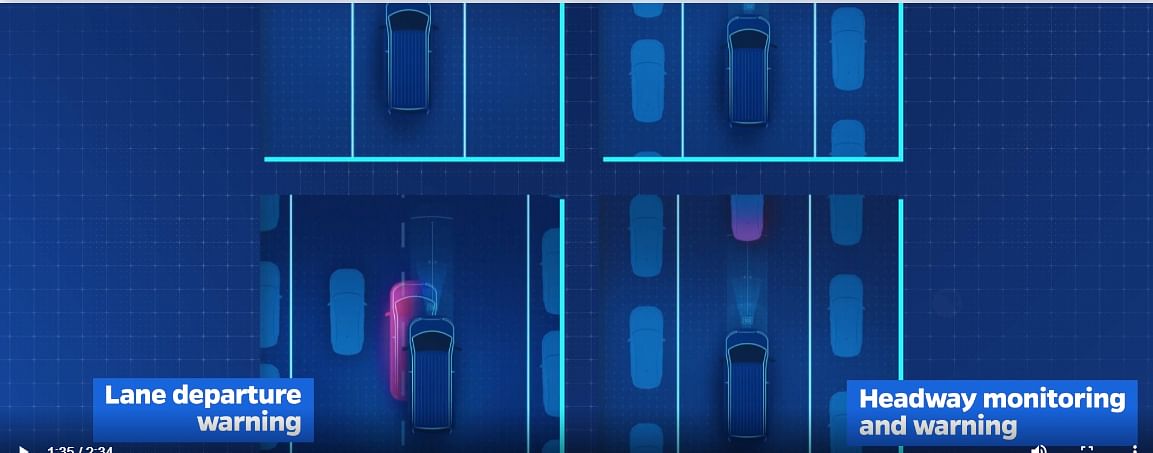Nitin Gadkari bats for AI-driven tech to improve road safety in India
Outlines 6-point strategy for lane discipline on national highways, detecting black spots, over-speeding, seatbelt usage, driver fatigue, forensic post-crash studies and enhancing ADAS
The buzz word around Artificial Intelligence (AI) is getting stronger, and its inclusion in complex decision-making process can only accelerate the results. While autonomous vehicles may not be a reality in India in the very near future in India, there are still some key areas where AI-driven technology may find its place soon. That’s what Transport Minister Nitin Gadkari believes.
“With the help of AI, we can measure, manage and predict traffic conditions which will allow us to take necessary steps to avoid congestion in time. Road safety is another major global challenge for developing and middle-income countries like India. Today, India accounts for 5 crore accidents annually, about 150,000 fatalities and 300,000 serious injuries affecting livelihood. The national and state level highway comprise only about 5% of the network, but they have a share of up to 60% in road deaths. Unfortunately, 70% of deaths are in the age group of 18-45 years. It is not just the loss of human life but also has a greater impact in terms of loss of the bread-winner in the low-income family, loss to the employer and a loss to the economy and society as a whole,” said Nitin Gadkari at Intel’s second edition of ‘all.ai’ virtual Summit, a 24-hour marathon that spans five continents, starting from Australia and moves across to ASEAN, India, Middle East, Europe, Africa and South America.
AI to enhance India’s multi-pronged road safety strategy
Gadkari said road safety is the topmost priority of the Indian government, which is endeavouring to reduce road accidents by 50% by 2024. “Over the last several years, we have been working on a multi-pronged strategy – building better roads across multi-lane divided highways and fixing issues with existing road infrastructure to promote safety. Efforts are also underway on training drivers and spreading awareness about road safety in public. We are implementing advanced technology, electronic surveillance systems for safe and efficient traffic movement on Indian highways. We have undertaken several initiatives under partnership with various agencies within the government, NGOs, industry and civil society. We understand the solution requires a very collaborative approach from the grassroots level to make this effort successful.”

Commenting on newer technologies, the minister said there are opportunities aplenty for application of AI-driven technologies in the transport sector, which removes human interference and the possibility of errors, thereby improving efficiencies and safety in traffic movement. “My vision is to use AI for enforcement purposes and specifically where State government machinery is failing short due to variety of reasons. I encourage AI-usage for enforcement of urgent and pressing areas such as:
- Enforcement of lane discipline on national highways, especially for trucks
- Detection of over-speeding and seat-belt usage in vehicles
- Forensic post-crash investigation
- Pattern of accidents on black spots
- Fatigue indicators and sleep detectors for drivers
- Advanced vehicle collision system


He added, “AI can be used to combine data from all of the above-mentioned applicable sources and the data used to make suitable changes at the policy level. The private sector can extend its cooperation and can provide technological assistance to engineering students, third-party agencies to study and submit an Accident Analysis report using AI-based technologies.”
Piloting ADAS tech for Nagpur city buses
The minister mentioned that MoRTH has constituted a National Road Safety Council (NRSC) as an independent body to conduct road safety activities in consultation with all stakeholders. Furthermore, he said that corporates and industry partners should come forward to work in collaboration for a better tomorrow. Gadkari said that around 4,000 NGOs across India are already working on various aspects of road safety; they need to be sensitised with AI-enabled tools for improving their effectiveness at large.
Gadkari said, “I had the opportunity to launch an AI-powered project called iRASTE (Intelligent Solutions for Road Safety through Technology and Engineering) in Nagpur. It is a unique industry-academia partnership initiated by the Nagpur Municipal Corporation, Intel, INAI, IIIT-Hyderabad, Mahinra & Mahindra, CSIR-CRRI (Central Road Research Institute). The project brings together top experts from India in the field of AI and road safety. It applies a safe system approach in aspects of – vehicle safety, mobility analysis and infrastructure safety.”
Under the project, Nagpur city buses will be equipped with AI-powered Advanced Driver Assistance System (ADAS), which will provide an alert to the driver two seconds before any collision happens. In case of collision, the technology will be used to identify and map potential accident black spots on the entire city road network to carry out early preventive safety measures. The monitoring is done continuously on city roads to gather information about road surface, assets, and other infrastructure condition that will be used for timely improvement work to ensure safety of road users.
“I am sure that the project will lead the world in leveraging AI for road safety goals. I am also confident that after the success of the project in Nagpur we will want to expand such projects across India and Intel will have to play a major role in this. Automated inspection of roads for quality and monitoring of traffic usage AI-tech at traditional scale is very much required. I am also promoting PPP mode and invite all stakeholders including Intel to work towards it,” concluded Gadkari.
ALSO READ ADAS will come in a big way in India by 2025: Tata Elxsi
Ride Vision’s ARAS tech to make two-wheelers safer in India
Hyundai Mobis develops path-breaking ‘brainwaves’-based ADAS tech
UN urges motorists to slow down, bats for low-speed streets to save lives
Old Mumbai-Pune Highway Vision Zero project reduces fatalities by 54% since 2018
RELATED ARTICLES
Cosmo First diversifies into paint protection film and ceramic coatings
The Aurangabad, Maharashtra-based packaging materials supplier is leveraging its competencies in plastic films and speci...
JSW MG Motor India confident of selling 1,000 M9 electric MPVs in first year
The 5.2-metre-long, seven-seater luxury electric MPV, which will be locally assembled at the Halol plant in Gujarat, wil...
Modern Automotives targets 25% CAGR in forged components by FY2031, diversifies into e-3Ws
The Tier-1 component supplier of forged components such as connecting rods, crankshafts, tie-rods, and fork bridges to l...






 01 Dec 2021
01 Dec 2021
 12643 Views
12643 Views










 Autocar Professional Bureau
Autocar Professional Bureau




